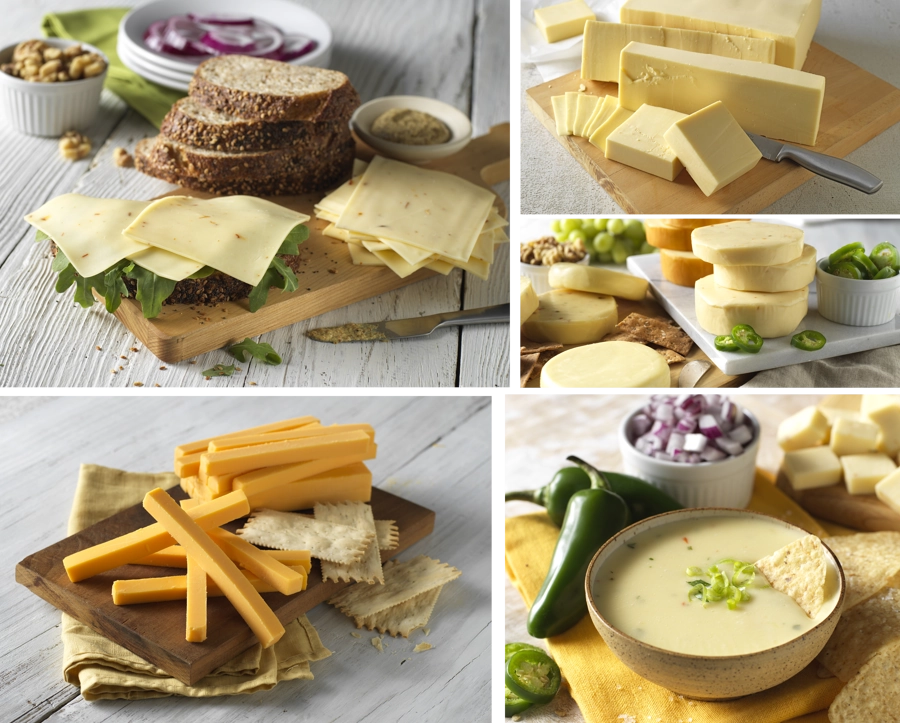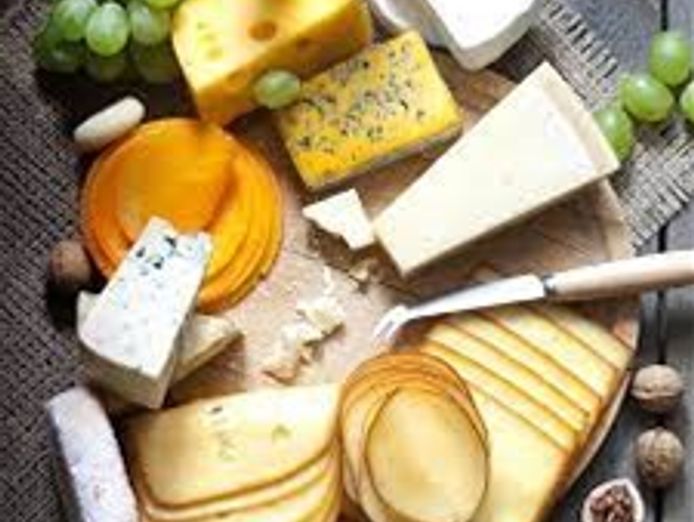Cheese Store Melbourne: Your Best Destination for All Things Cheese
Cheese Store Melbourne: Your Best Destination for All Things Cheese
Blog Article
An In-Depth Appearance at Cheese Manufacturing: Ingredients, Approaches, and the Future of Craftsmen Cheeses
The elaborate process of cheese production is a remarkable convergence of art and science, where premium milk, rennet, and particular microbial cultures act as fundamental components. Standard strategies, such as salting and aging, are complemented by modern-day developments that react to developing consumer preferences. As the industry increasingly focuses on sustainability and openness, the future of artisan cheeses assures to reflect both heritage and development. Understanding the subtleties of these methods increases engaging questions regarding the direction of cheese production and its ramifications for high quality and authenticity. What exists in advance in this developing landscape?
Trick Components in Cheese Manufacturing
A range of important ingredients play a critical role in cheese production, each adding to the end product's taste, texture, and personality. The primary ingredient in cheese is milk, which can come from various resources, consisting of cows, goats, and lamb - cheese store melbourne. The kind of milk made use of considerably influences the cheese's preference and uniformity; for instance, cow's milk normally produces creamier cheeses, while goat's milk usually produces zesty varieties
One more important component is rennet, an enzyme used to curdle the milk, separating it into curds and whey. The resource of rennet can be animal, veggie, or microbial, each presenting distinctive features to celebrity. Societies, including specific pressures of microorganisms, are additionally integral to the cheese-making process. They ferment lactose right into lactic acid, assisting in taste advancement and texture.
Salt not just enhances the taste however additionally serves as a chemical, inhibiting the development of unfavorable bacteria. Furthermore, numerous flavor agents, such as natural herbs, flavors, or perhaps smoked wood, can be contributed to develop distinct artisanal cheeses. Together, these components form the structure of cheese manufacturing, setting the phase for diverse and abundant cheese varieties.
Conventional Cheese-Making Techniques
Making use of conventional cheese-making techniques, craftsmens worldwide protect classic techniques that have actually been given through generations. These methods commonly highlight the use of top quality, in your area sourced milk, which is central to the special flavors and structures of artisanal cheeses. The procedure generally starts with the cautious home heating of milk, complied with by the addition of cultures and rennet to promote coagulation.
As soon as the curds develop, they are reduced, enabling whey to drain pipes, an essential step that influences moisture content and structure. Salting is a crucial aspect of this process, boosting taste while likewise acting as a preservative.
Aging, or affinage, is one more important element, throughout which cheeses establish their characteristic scents and tastes. Artisans might utilize specific aging settings, making use of moisture and temperature level controls to improve celebrity's account. The commitment to these conventional techniques not only supports local economic climates however also adds to the rich diversity of cheese ranges found worldwide, celebrating cultural hop over to these guys heritage and artisanal craftsmanship.
Modern Developments in Cheese Manufacturing
Exactly how have technological innovations transformed cheese manufacturing recently? The assimilation of contemporary technology has actually reinvented both the efficiency and high quality of cheese manufacturing. Automation in different stages of the process-- from curd development to product packaging-- has actually enhanced uniformity while lowering labor expenses. As an example, automated curd cutting and mixing systems enable for precise control over appearance and wetness degrees, crucial elements affecting the end product.
In addition, developments in microbiology have actually enabled cheesemakers to choose details bacterial societies and enzymes, optimizing flavor accounts and boosting life span. Making use of sensor modern technology for keeping an eye on fermentation problems has actually also come to be common, enabling real-time modifications to preserve optimum environments for cheese aging.

These improvements not only boost the high quality and sustainability of cheese production but additionally equip artisan manufacturers to preserve standard flavors while welcoming contemporary efficiency. As modern technology proceeds to develop, the future of cheese manufacturing looks promising, mixing recommended you read practice with advancement.
The Role of Terroir in Cheese
In the realm of cheese manufacturing, terroir plays a critical role in defining the distinct attributes of various cheeses. Terroir, a French term commonly connected with a glass of wine, includes the ecological factors that influence farming items, consisting of soil structure, climate, and neighborhood flora and animals. In cheese-making, the unique attributes of the area where the milk is sourced can convey details tastes and structures to the last product.
As an example, the grazing conditions of milk animals dramatically affect the milk's make-up, influenced by the kinds of grasses and natural herbs readily available in a particular area. This differs not only in between nations but likewise in between areas within the same nation. Furthermore, the microbial communities existing in the environment contribute to the fermentation procedures, bring about diverse profiles in taste and fragrance.
Cheeses such as Roquefort, Parmigiano-Reggiano, and Cheddar exhibit how terroir can shape their identifications, making them distinctive and usually safeguarded by geographical indicators. As manufacturers significantly recognize the relevance of terroir, there is a growing emphasis on sourcing regional anchor components and keeping typical practices, ensuring that each cheese really shows its origin.

Future Fads in Craftsmen Cheeses
A noteworthy shift is happening in the artisan cheese field, driven by advancing customer choices and technological innovations. Progressively, customers are moving towards one-of-a-kind, top notch items that emphasize both sustainability and neighborhood sourcing - cheese shop melbourne. This trend is prompting artisan cheesemakers to innovate, concentrating on small-batch production and using typical methods while incorporating modern technology to improve quality and security
Moreover, there is a growing passion in plant-based and alternative milk products, pressing standard cheesemakers to explore brand-new avenues, such as cashew or almond-based cheeses. This shift not just provides to nutritional constraints but also aligns with ecological worries regarding animal farming.
In addition, transparency in sourcing and manufacturing processes is becoming extremely important. Customers are much more educated and need traceability, prompting manufacturers to take on more clear labeling practices and participate in storytelling that highlights their techniques and worths.
Conclusion
In final thought, the detailed procedure of cheese production melds conventional strategies with contemporary developments, leading to a diverse variety of tastes and structures. The focus on high-quality active ingredients and the impact of terroir emphasize the virtuosity involved in cheese manufacturing. As the industry evolves, a focus on sustainability and transparency will likely shape the future of artisan cheeses, satisfying an increasingly critical customer base that values credibility and craftsmanship in dairy products.
Report this page